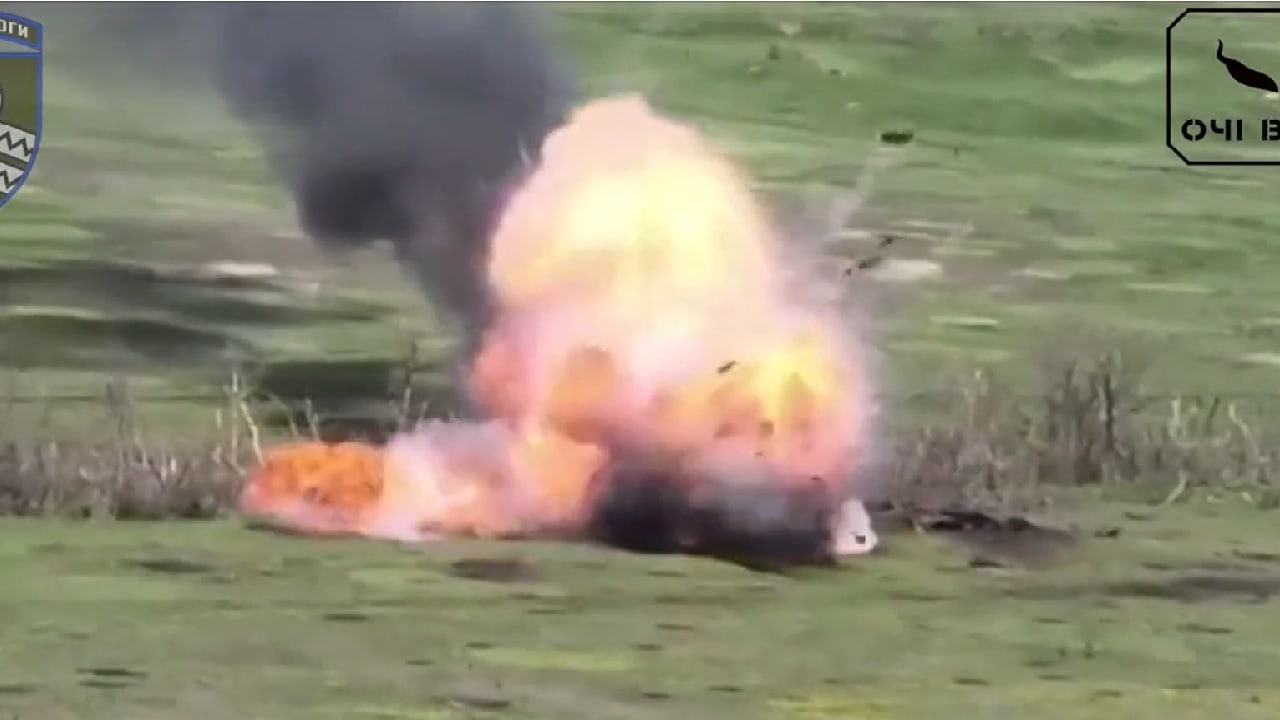Ukrainian forces continue to use unconventional warfare to sabotage the Kremlin’s “special military operation” in Ukraine.
Since the start of the war, the Ukrainian special forces and military intelligence have used training provided by the United States and the West to undermine the Russian military’s campaign by destroying infrastructure and logistical nodes even hundreds of miles behind the frontlines.
Sabotage in Ukraine
On Thursday, a train heading to Simferopol, a town in Crimea, got derailed. The derailed train is now blocking the only rail line into the port of Sevastopol, the capital of Russian-occupied Crimea and the headquarters of the Russian Navy’s Black Sea Fleet. Russian officials state that the derailment was the result of foreign interference.
Since the sinking of the missile cruiser Moskva, the flagship of the Black Sea Fleet, by Ukrainian anti-ship missiles in April 2022, the Russian Navy has played a largely secondary role in the “special military operation.” Russian submarines continue to launch ballistic and cruise missiles into Ukraine, but they are doing so at a much restricted pace.
“Russia will move to repair the line quickly, but the incident will disrupt deliveries of supplies and potentially also weaponry, such as Kalibr cruise missiles, to the [Black Sea Fleet],” the British Military Intelligence assessed in its latest estimate of the war.
The Ukrainian military is getting ready to launch a large-scale counteroffensive. The Crimean Peninsula is one of the possible targets for the Ukrainian forces, and these attacks are aiming to disrupt and Russian defenses.
“Any sabotage in this sensitive area will further increase the Kremlin’s concerns about its ability to protect other key infrastructure in Crimea. The peninsula retains a vital psychological and logistical role in enabling Russia’s war in Ukraine,” the British Military Intelligence added.
This is the latest instance of attack or sabotage against Russian infrastructure or logistical nodes.
A few weeks ago, the Ukrainians launched suicide drones against a large Russian oil refinery and fuel depot in the Crimean Peninsula.
Russian Casualties
Meanwhile, the Russian forces are taking significant casualties on the ground. The Russian military and private military company Wagner Group are losing hundreds of troops killed or wounded on a daily basis in the fighting in the Donbas. Bakhmut has become the graveyard of the Russian forces, with more than 100,000 casualties in or around the ruined town.
And on day 449 of the Russian invasion of Ukraine, the fighting in and around Bakhmut continues with no end in sight.
Overall, the Ukrainian Ministry of Defense claimed that as of Friday, Ukrainian forces have killed and wounded approximately 201,760 Russian troops.
Equipment destroyed includes: 308 fighter, attack, bomber, and transport jets, 294 attack and transport helicopters, 3,777 tanks, 3,210 artillery pieces, 7,377 armored personnel carriers and infantry fighting vehicles, 564 Multiple Launch Rocket Systems (MLRS), 18 boats and cutters, 6,083 vehicles and fuel tanks, 319 anti-aircraft batteries, 2,769 tactical unmanned aerial systems, 419 special equipment platforms, such as bridging vehicles, and four mobile Iskander ballistic missile systems, and 1,011 cruise missiles shot down by the Ukrainian air defenses.
A 19FortyFive Defense and National Security Columnist, Stavros Atlamazoglou is a seasoned defense journalist specializing in special operations, a Hellenic Army veteran (national service with the 575th Marine Battalion and Army HQ), and a Johns Hopkins University graduate. His work has been featured in Business Insider, Sandboxx, and SOFREP.

